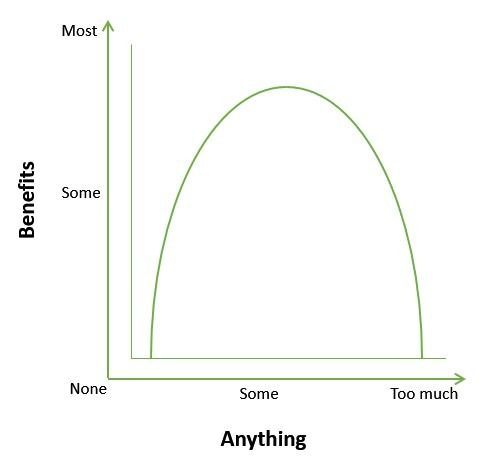The role of entrepreneurs’ facial expressions to gain financial support
As an entrepreneur, attracting financial support is essential to get your start-up of the ground. How can positive facial expressions help to be more successful in a funding pitch?
Posted by
Published on
Tue 25 May. 2021
Topics

As an entrepreneur, attracting financial support is essential to get your start-up of the ground. However, entrepreneurs typically face tremendous challenges in convincing investors to fund their early-stage ventures. Many researchers have pointed out that displaying positive emotions during a funding pitch can help persuade investors. But how exactly does this work? How can positive expressions help entrepreneurs be more successful in their funding pitch?
Jiang, Yin, and Liu (2019) researched this by looking at joy as a positive emotion, to answer the question: Does displaying positive emotions (e.g. joy) during a funding pitch help an entrepreneur gain more financial support?
Emotions as temporally dynamic and not static
Since gaining financial support is critical for an entrepreneur, many researchers have looked at the roll of an entrepreneur’s positive emotional display on funding support. It turns out that it is the displayed emotions and not the experienced emotions that the audience directly observes and uses as input for assessment. Only, most studies looked at expressions as static and overall or average levels, and recent research has shown that emotions are temporally dynamic and more salient in some moments or phases than others.
Therefore, Jiang et al. (2019) used a dynamic approach in their research to examine the “peak” moments of entrepreneurs’ displayed joy – specifically, the strength and duration of peak displayed joy during different phases of a pitch.
Peak displayed Joy – strength and duration during different phases
Why “peak” moments? When evaluating one's feelings after a certain event (either positive or negative), people tend to rely on peak moments of experienced emotions during that event rather than giving an overall evaluation. As an entrepreneur, you want your audience to give you a positive evaluation right? Well, when expressing positive emotions, you can ‘contaminate’ your audience with your positivity.
Emotional contagion is particularly strong when the displayed emotions are highly expressive. Hence the researchers’ interest in the peak moments of displayed joy.
But that’s not all. Duration plays an important role here. The more intense and longer the peak displayed joy, the more attention from the audience and therefore increasing the emotional contagion. However, there is a limit here.
Beyond a certain threshold, when peak displayed joy is overly long, the audience may instead develop negative inferences about it. So apparently, there is a so called “inverted U-shape” effect here as you can see in Figure 1.

Figure 1. The inverted U-shaped relationship
Lastly, the researchers also hypothesize about the timing of displayed joy during a funding pitch. Particularly the beginning and ending phases may play a salient role due to primacy and recency effects, which is the tendency of a person to recall the first (primacy) and last (recency) part of an event best.
To sum it up, the researchers were interested in examining the impact of an entrepreneur’s peak displayed joy level (a unique strength feature of emotional displays), as well as the total time length of these peak moments (a unique temporal feature of emotional displays). Moreover, they investigated the level and duration of peak displayed joy in two salient temporal phases of a funding pitch: the beginning and ending.
Measuring the effect of displayed Joy on financial support
To test the hypotheses, the researchers looked at the effect of displayed emotions in an important entrepreneurial context: pitching their business ideas to gain financial support from others. Therefore, 1460 pitch videos from Kickstarter (one of the biggest crowdfunding platforms) were used, with a display of entrepreneur’s faces.
To measure displayed emotions, the researchers found FaceReader™ to be the most suitable tool to automatically analyze facial expressions. FaceReader can accurately measure joy (96-100%) by analyzing the facial expressions (e.g. the movement of facial muscles in the lips and eyes) for each frame and calculate the intensity and duration of joy.

Financial support (funding performance) was measured by (1) the number of backers who pledge money to the project, and (2) the total amount of funding in U.S. dollars pledged by backers.
Can Joy buy you money?
So, is it true? Does displaying positive emotions during a funding pitch help an entrepreneur gain more financial support?
Jiang et al. (2019) found consistent support for the positive effect of peak displayed joy on funding performance, especially in the beginning and ending phases of a funding pitch. They also found support for the inverted U-shaped effect of peak duration in the entire pitch and in the beginning of a pitch.
So interestingly, although a higher level of peak displayed joy leads to better funding performance, prolonged display of peak joy can undermine funding performance. Timing is also key here, since the effect is highest in the beginning phase.
Thus, if you are an entrepreneur and you ask yourself if displaying joy can buy you money: Well, if you keep in mind to peak at the right moment and not peak too long, you might increase your chances!
Reference
Jiang, L., Yin, D. & Liu, D. (2019). Can joy buy you money? The impact of the strength, duration, and phases of an entrepreneur’s peak displayed joy on funding performance. Academy of Management Journal, 62, 1848-1871. https://doi.org/10.5465/amj.2017.1423
Related Posts

Consumers' food choices and emotions

Who is the best product representative?

